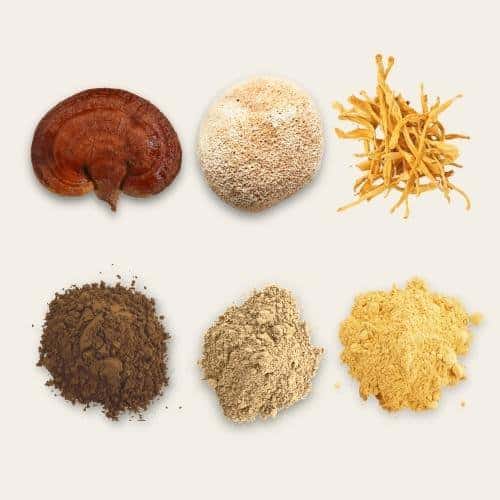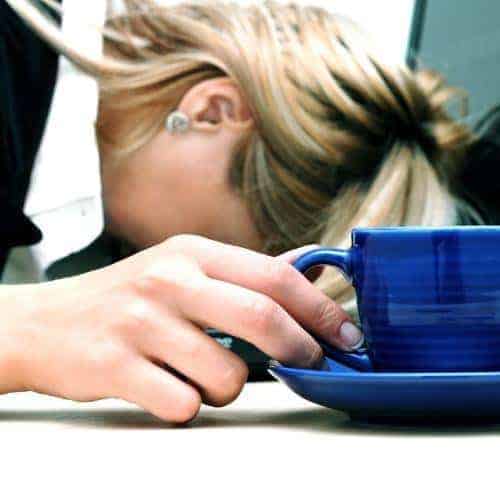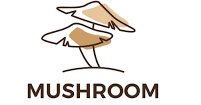Functional Mushroom Benefits for Women Their Hormonal Health

Reishi Mushroom Written by Real Mushrooms
Reishi Mushroom We’ve come a long way when it comes to healthcare.Reishi Mushroom
Still, there’s no denying that women’s health concerns are often downplayed or overlooked. Women experience unique health challenges, such as pregnancy issues, menopause, increased risk of autoimmune disorders, and certain types of cancers.
We at Real Mushrooms understand the importance of women’s health. That’s why we’re dedicating this article to functional mushroom benefits for women and common concerns about their well-being.
We’ll look at some of the well-studied benefits of 3 functional mushrooms: reishi, lion’s mane, and cordyceps. We will review how they can help women manage the symptoms of menopause, Reishi Mushroom promote healthy hormone levels, and how they can support fertility.
In this article:
- Mushroom Benefits for Women in Menopause
- Mushrooms May Help Balance Hormones
- Mushrooms May Help With PCOS And Fertility
- Optimize Women’s Health with Functional Mushrooms

Mushroom Benefits for Women in Menopause
Menopause is a time of major changes for women – in the middle of their lives. It marks the end of menstrual cycles, a result of a steep decline in estrogen and progesterone.
Though inevitable, many women dread perimenopause (the transition period to menopause) and menopause. The fluctuations and eventual cessation of ovarian estrogen and progesterone production lead to symptoms like sleep problems, mood changes, hot flashes, and anxiety.Reishi Mushroom
In other words, menopause can make women feel like they don’t recognize themselves anymore.
If you’re a woman experiencing menopause, there are things you can do to support your body. Let’s look at the mushroom benefits for women experiencing menopause and how 3 types can help alleviate some common symptoms.
Reishi for Menopause
Reishi (genus Ganoderma) mushrooms seem to be in their own league when it comes to potential health benefits. While there may be as many as 2,000 Ganoderma species, the most common is G. lucidum. Read about the historical uses of reishi in Reishi Mushroom History: Cultural Uses & Reverence.
Let’s examine how reishi can support your body during menopause.
Reishi Helps With Sleep
If you’re going through menopause and can’t sleep, you’re not alone.
Experts estimate around 12% of women experience sleep difficulties. But sleep complaints increase dramatically among women in their late 40s to early 50s (1). Because this age range is when women typically transition to menopause, the increase suggests a potential link between sleep disturbances and menopause transition.
Reishi mushrooms are used in traditional Chinese medicine for their sedative (An-Shen) effect (2,3). This means regular use of reishi mushrooms could help you not lose sleep from your racing thoughts.
A study in rats showed that reishi decreased sleep latency, or the time it takes one to fall asleep. In doing so, reishi increased the rats’ sleeping time, non-rapid eye movement (REM) sleep time, and light sleep time (4). The findings from this study suggest that the bioactive compounds in reishi may affect the gamma-aminobutyric acid (GABA) pathway. GABA is an inhibitory neurotransmitter known for helping reduce stress and enhancing sleep (5).
A similar study showed the influence of reishi mushroom extracts in rats. Just 3 days of treatment at 80 mg/kg increased total sleep time and non-REM sleep time (3). Researchers also found increases in tumor necrosis factor-alpha (TNF-ɑ), a key regulator of sleep (6).
Another way by which reishi promotes sleep may be through your gut microbiome. A mouse study published in the journal Scientific Reports reported that the sleep-promoting effect may be due to a signaling increase in a serotonin-associated pathway in the brain. This effect appears to also be dependent on the health of the gut microbiome, as it disappeared when antibiotics depleted the gut microbiome (7).
These animal studies suggest various mechanisms through which reishi helps promote higher quality sleep. More research will be needed to confirm these findings.

Reishi Helps With Energy
Traditional Chinese medicine physicians call reishi “the mushroom of immortality” for its all-encompassing health support (8).
Let’s look at some of the research.
A common method used to study anti-tiredness effects in mice is a forced swimming test. Multiple animal studies show a significant anti-fatigue effect in reishi. For example, a study published in 2012 showed that polysaccharides from reishi extended the exhaustive swimming time of mice. The polysaccharides also displayed their powerful antioxidant qualities in this study by decreasing the blood lactate and serum urea nitrogen contents (9).
Fatigue is also a common side effect associated with medical conditions. A study evaluated the effects of reishi mushroom and carob on women with fibromyalgia. After 6 weeks of takinhttps://annarborshroom.com/g 6 grams of reishi per day, the participants showed significantly enhanced physical fitness and up to 30% less pain. The group that took the carob supplements showed no improvements (10).
A preliminary study from Thailand looked at the effects of reishi mushrooms on 50 subjects with chronic fatigue syndrome. The subjects who received the treatment for 12 weeks reported less fatigue and better quality of life (11).
Interested in learning more about reishi? Check out Reishi Mushroom Benefits & Usage: A Comprehensive Guide.
Lion’s Mane for Menopause
Lion’s mane (Hericium erinaceus) is known by various nicknames, such as the “monkey head mushroom” or the “pom-pom” mushroom. These mushrooms are easily identified by their long, thin, soft white tendrils that resemble, well, a lion’s mane.
Any discussion about the lion’s mane mushroom would be incomplete without talking about its brain-boosting properties.
Let’s examine how lion’s mane can help you during menopause.
Lion’s Mane Supports Your Memory
Women are disproportionately affected by Alzheimer’s disease. Experts estimate that out of the 6.5 million Americans living with the disease in 2022, almost two-thirds are women (12).
Researchers are still trying to figure out why, but here’s what we know so far:
- Women tend to live longer than men.
- The amyloid plaques that lead to Alzheimer’s disease may actually be a byproduct of your brain’s immune mechanism that protects against fungal and bacterial infections (13).
- Women are about twice as likely to develop an autoimmune disorder compared to men.
- Studies show women have stronger immune systems (14).
One Harvard researcher proposed that women’s stronger immune systems may be the reason behind their greater risk for Alzheimer’s disease (15).
Even without this risk, the decline in estradiol — the primary form of estrogen in the brain — can impact memory function.
The good news is, there are many things you can do to maintain your brain health regardless of your age. And lion’s mane can play a part.
The brain-supporting properties of lion’s mane are attributed to two highly studied compounds: hericenones and erinacines. These two compounds stimulate the production of nerve growth factors (NGFs). Research studies have linked NGF deficiency to memory impairments and impaired production of new neurons (neurogenesis) (16).
In a Japanese human clinical trial, subjects were given either a lion’s mane mushroom supplement or a placebo for 12 weeks. Both groups were evaluated using 3 tests: a mental state exam, a visual retention test, and a verbal paired-associate learning test. Only the supplement-taking group showed improvements at the end of the trial, demonstrating the potential of lion’s mane to support cognitive function (17).
Another human trial using lion’s mane in menopausal women showed reductions in feelings of anxiety and irritation after 4 weeks (35).
Interested in learning more about lion’s mane? Check out Lion’s Mane Mushroom Benefits: A Complete Supplement Guide.

Cordyceps for Menopause
Fatigue is a common symptom of perimenopause and menopause. The decline in estrogen and progesterone can knock other hormones off balance, resulting in fatigue. And as discussed earlier, many women also experience poor sleep quality, which also contributes to fatigue.
Rather than reaching for yet another cup of coffee or an energy drink, cordyceps mushrooms may offer a caffeine-free way to sustain energy.
Unlike many other functional mushrooms, cordyceps mushrooms don’t grow on wood. Instead, the spores of these parasitic fungi infect insects and arthropods. Each cordyceps species infect a specific bug.
To date, more than 400 species of Cordyceps mushrooms have been identified. The two most famous cordyceps species are Cordyceps sinensis (now Ophiocordyceps sinensis) and Cordyceps militaris.
To learn more about these fascinating mushrooms, check out our guide Cordyceps Mushrooms: Supplement Types & Health Benefits.
So how can parasitic fungi support you during menopause? Let’s look at a few well-known properties of cordyceps and how this type of mushroom can benefit women’s health during menopause.
Cordyceps Helps with Energy
Cordyceps mushrooms are popular in traditional Chinese medicine for their invigorating and energy-enhancing qualities.
A clinical trial studied the effects of cordyceps supplementation in 20 healthy elderly subjects. One group received the placebo, and the experimental group received 333 mg of a cordyceps mushroom supplement three times a day for 12 weeks. At the end of the study, the subjects who received the cordyceps supplement saw increases in their metabolic threshold and their ventilatory threshold. On the other hand, no significant changes were seen in either threshold for the control group (18).
If you’re an athlete though, it’s possible that you won’t experience the energy-enhancing benefits from cordyceps mushrooms.
A study involving 22 endurance-trained male athletes showed that cordyceps mushroom supplementation had no effect on endurance or aerobic capacity (19). The researchers in this study theorized that because trained athletes are already close to their aerobic capacity, cordyceps mushroom supplements wouldn’t have a significant effect.
So how do cordyceps mushrooms accomplish all of this? Animal and laboratory studies may provide some insight into this question.
One research team studied the effects of a 2-week C. militaris supplementation in mice. Administration of the fungi increased ATP levels and antioxidative enzyme activity. The treated mice had lower levels of lactic acid, lactic dehydrogenase, malondialdehyde, and reactive oxygen species compared to untreated mice.Reishi Mushroom In short, the cordyceps mushroom supplements helped enhance stamina in the treated mice (20).

Cordyceps Can Help with Libido
Your hormone levels taking a nosedive during menopause has another huge impact — a lower sex drive, or libido. You may have a harder time becoming aroused, or you may find that your body isn’t as sensitive to intimate touches as it used to be. For some women, vaginal dryness resulting from hormonal changes can make sex downright painful (21).
Practitioners of traditional Chinese medicine have long appreciated cordyceps mushrooms for their effects on sexual functions.
Few clinical trials investigating the libido-enhancing effects of cordyceps mushrooms have included women. In one placebo-controlled trial involving elderly patients with decreased libido, an astonishing 86% of women taking a Cordyceps mushroom supplement reported improvements in their sex drive. Even more impressive, this improvement was seen after only 40 days of Cordyceps supplementation (22).
A similar clinical trial involved 189 subjects (men and women) with decreased libido. After 40 days of treatment with Cordyceps mushrooms, 66% of the patients reported improvements compared to just 24% of those who received the placebo (22).
The mechanism for the aphrodisiac activity of cordyceps mushrooms remains unclear. One possibility is that its ability to support testosterone production could benefit women, especially those undergoing perimenopause and menopause (23). While it may seem counterintuitive, recent studies actually show that adding testosterone to hormonal therapy in women can improve their sexual function, including boosting their sexual desire (24).
Mushrooms May Help Balance Hormones
Hormones are chemical messengers that allow your cells to communicate with one another. The lack of energy and poor sleep quality discussed in the above sections have a common root cause: hormone imbalance.
All women, not just those in menopause or postmenopause, can experience hormonal imbalance. That’s because hormones work together to keep your body in a state of balance, or homeostasis. Scientists have identified more than 50 hormones so far in the human body, just a few of which include (25,26):
- Estrogen
- Testosterone
- Insulin
- Thyroid hormones
- Progesterone
- Antidiuretic hormone
- Cortisol
Hormones influence just about every aspect of your body. That’s why even minor disruptions in their delicate balance can lead to unwanted symptoms like mood swings.
Reishi Mushroom and Hormone Balance
There are plenty of ways to support healthy hormone levels, beyond lifestyle factors like a healthy diet and regular exercise. Research suggests that adaptogens, especially plant-originated ones, can help strengthen the stability of your body’s internal environment and avoid damage (27).
As adaptogens, functional mushrooms like reishi can help support a healthy endocrine system.
Let’s take stress as an example. Stress and anxiety can increase your cortisol level. This natural, valuable system helps your body respond to immediate threats. But as a woman in our modern society, you likely have to endure more stress than ever, from your career to childcare. And this long-term activation of your stress response system (and overexposure to cortisol) disrupts the balance of your other hormones.
From our discussion so far, you might have guessed that reishi can help your body adapt to stress. In one study, scientists explored the adaptogenic potential of reishi in mice using the elevated plus maze model. They found that mice given a reishi extract at the dose of 200 mg/kg showed lower levels of anxiety than those that received a placebo (28).
Reishi has also demonstrated estrogen-like activity in cell models and rats, which suggests that it could be useful in regulating estrogen levels (29). Further evidence is needed to confirm whether it exhibits similar properties in humans.

Mushrooms May Help With PCOS And Fertility
Polycystic ovarian syndrome (PCOS) is a common hormonal disorder among women, characterized by higher-than-normal levels of androgens and changes in insulin sensitivity. High levels of androgens may interfere with ovulation, lead to the formation of cysts, and produce other symptoms like excess hair growth on the face (30).
Reishi and PCOS
Anti-androgens are compounds that can either block or suppress the action of hormones like testosterone. There has been increasing interest in plant- and fungi-originated anti-androgens as complementary therapies to conventional medications.
Research shows that reishi may have the strongest testosterone-inhibiting activity. A study by Fujita and colleagues compared the 5-alpha-reductase activity of various mushroom species (31). The enzyme 5-alpha-reductase converts testosterone to dihydrotestosterone, an androgen that stimulates the development of masculine characteristics.
Of the 19 species tested, reishi exhibited the strongest inhibitory activity against 5-alpha-reductase, suggesting that it may help promote a healthy hormonal balance.
Maitake and PCOS
Another great functional mushroom for women with PCOS is maitake (Grifola frondosa).
One study found that maitake mushrooms may benefit women with PCOS as well. Maitake extract monotherapy induced ovulation in nearly 77% of the patients. It also displayed ovulation-inducing abilities when used in combination with clomiphene citrate, a common medication to treat infertility in women (33).
These findings suggest that maitake may induce ovulation in patients with PCOS either as a monotherapy or in combination with other fertility treatments. However, larger trials are needed to confirm these theories.

Reishi for Stress-Related Fertility Issues
Chronic stress, obesity, hormonal imbalance, and other factors can increase your risk of infertility.Reishi Mushroom
Fortunately, reishi mushrooms can help.
Stress isn’t just “I have a million things to do” stress. It can come to you in various forms, such as pro-inflammatory foods, financial challenges, relationships, not getting enough sleep, etc.
The list of stressors is endless.
Adaptogens like reishi can help your body adjust to occasional stress and maintain stability in your body. In addition to promoting better sleep quality, research indicates that reishi can modulate the endocrine organs involved with stress hormone production. This supportive activity may help balance excess stress hormone production (34).
If you’re struggling with high stress, consider adding reishi to your daily regimen.
Optimize Women’s Health with Functional Mushrooms
Women face many unique health challenges that may benefit from the support of functional mushrooms. Before making any changes to your diet or supplements, we recommend consulting your physician to make sure they’re right for you.
If you’re looking for the best functional mushrooms to support your health, look no further than Real Mushrooms supplements. You can be confident in the safety, efficacy, purity, and potency of our products.
